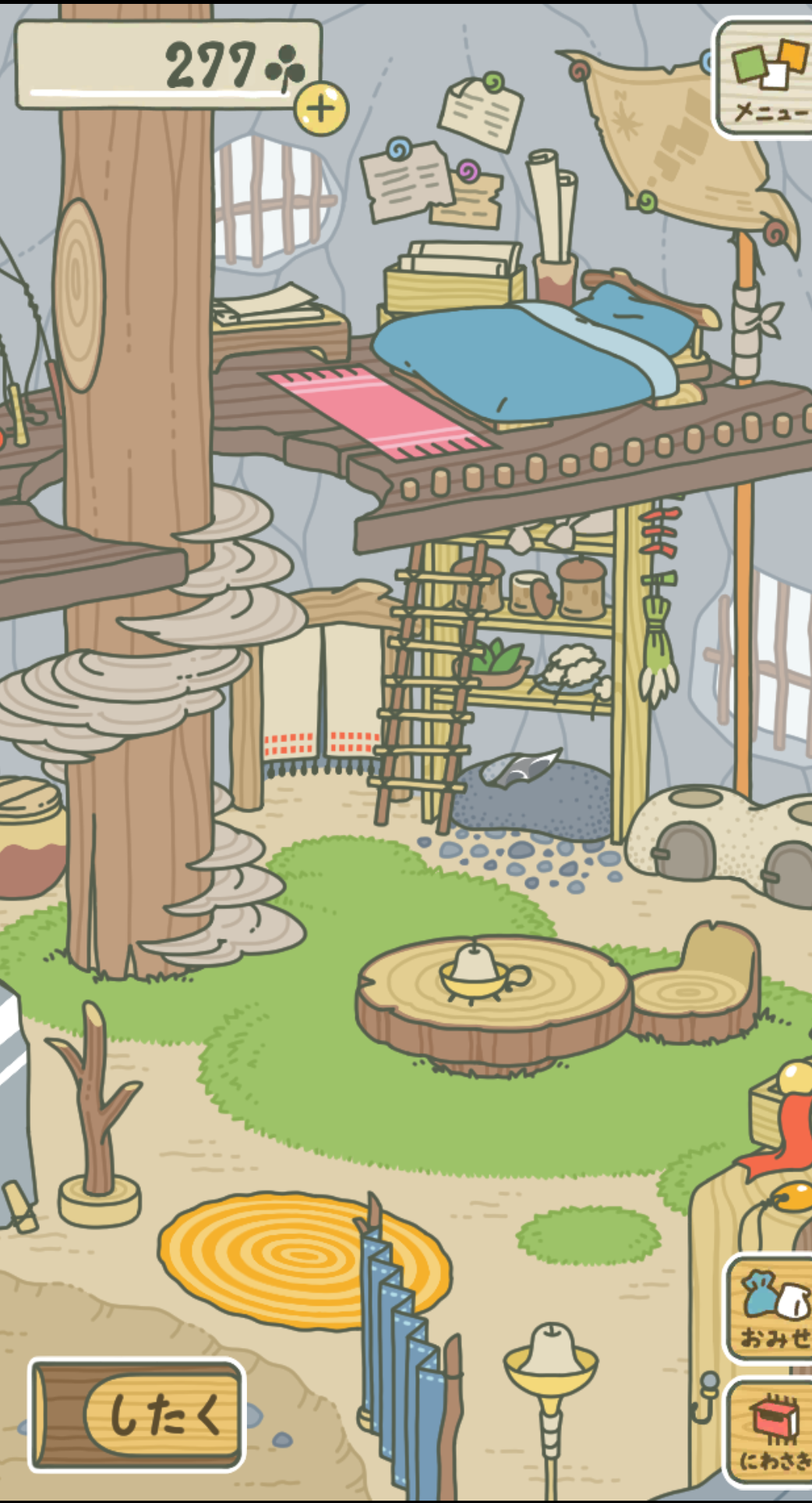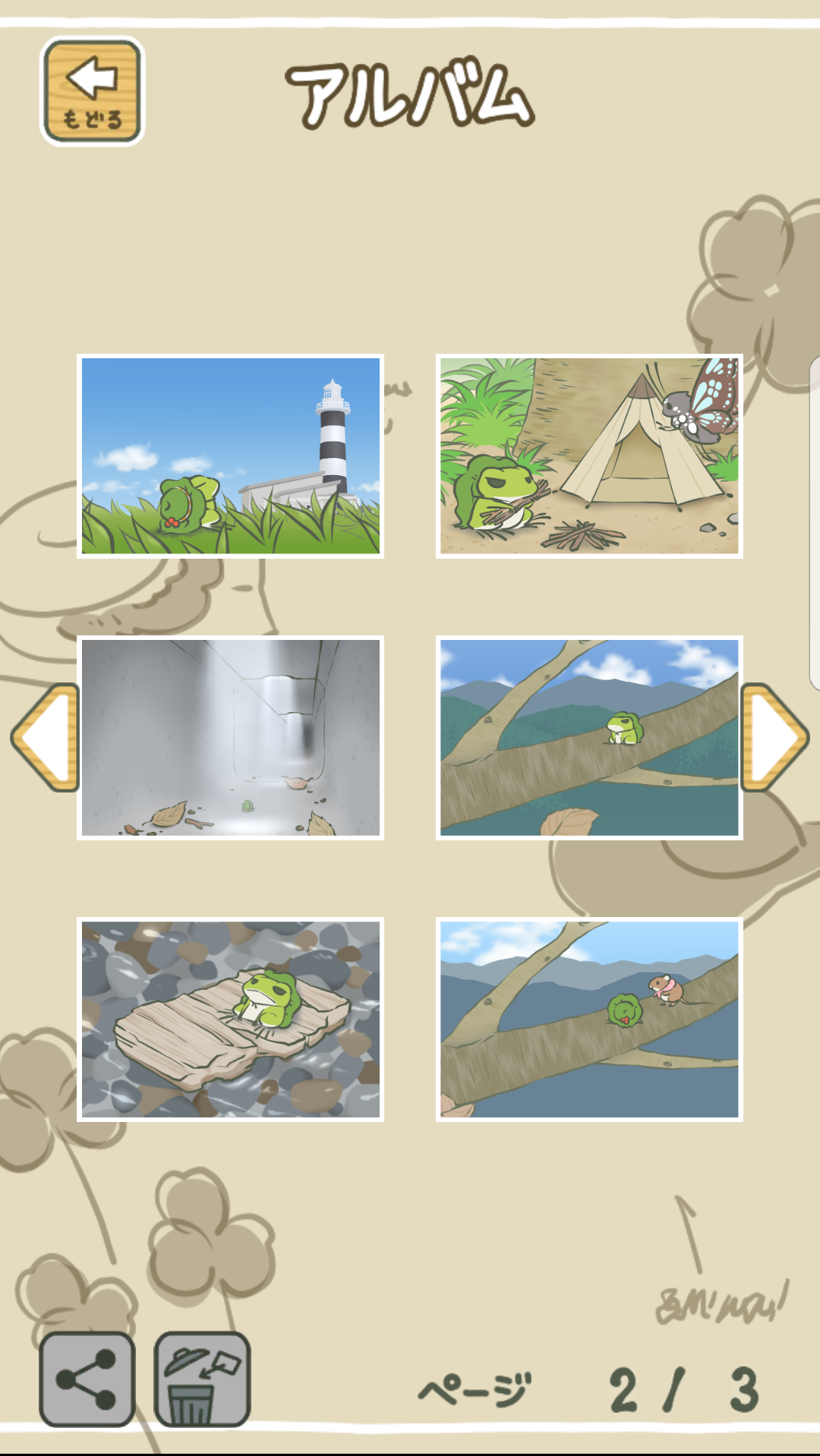
The above is a very famous Japanese cure mobile game at this month![ 旅かえる]means travelling frog!
The gameplay is simple, the player is basically out of dialogue with the frog, and the frog stays out of the house except for staying home, but you do not know how long the frogs will go out or where to go, occasionally sending photos back and sometimes with bring back some souvenir.
Chris Fagundes, an assistant professor of psychology at Rice University in the United States and his research team, recruited 213 healthy participants and conducted an experiment to understand how loneliness affects people's feelings of illness. The results showed that "lonely people feel worse when they are sick than those who are not alone."
A number of studies point out that loneliness is harmful to health. It increases the risk of many diseases such as cardiovascular disease, cancer, depression and dementia. A large research report by researchers at Brigham Young University in 2015 also shows that loneliness and social segregation are risk factors for death and are as fatal as obesity, smoking and lack of exercise.
In recent years, the impact of loneliness on health has become the focus of extensive media discussion. It is worth noting that loneliness or loneliness is not about how many friends a person has, how long to spend alone with, but his or her desire for more social interaction.
上圖是近期熱爆的日本治療系手機遊戲![旅かえる] 解作旅行青蛙!
遊戲玩法很簡單,玩家與青蛙基本不對話,青蛙除了在家待著,還會動不動出去旅行,但你不會知道青蛙會出去多久或去了那裡,偶爾會寄照片回來,有時還會帶些手信回來。
美國萊斯大學心理學助理教授法根迪斯(Chris Fagundes)和他的研究團隊,找來 213 名身體健康的參與者,進行了一項實驗,以了解孤獨如何影響人們的生病感受。結果發現「孤獨的人生病時的感受,比不孤獨的人要來得糟。」
多項研究指出,孤獨有害健康。它提高了罹患心血管疾病、癌症、抑鬱症和老年癡呆等多種疾病風險。楊百翰大學(Brigham Young University)研究人員在 2015 年提出的大型研究報告也顯示,孤獨與社會隔離,都是導致死亡的風險因素,和肥胖、吸煙和缺乏運動一樣致命。
近年來,有關孤獨對健康的影響,已成媒體廣泛議論焦點。值得注意的是,孤獨或孤單寂寞,談的並不是一個人有多少朋友、花多久時間獨處,而是他或她對更多社交互動的渴望。

How can it cure the people?
Game developer Yoshimura Uemura said: "The game is to make the real possibility impossible, so let the frog replace us to do what we can not do."
To psychology to explore the frog anyway, the game will go home setting, not only for the user as if made a funny friend, but also to meet some users for "safe attachment (John Bowlby proposed)" That is to say, even if the people concerned are not around, but because they know and trust each other will certainly come back, they will not feel anxious and restless, and they will get more or less a sense of security.
In addition, in the interaction between frogs and frogs, the frogs experience safe and boundless interactions and rebuild the bridge back to the real world. Only by clearly articulating needs and setting boundaries can we have a healthy relationship.
We can reflect on the nature of our relationship and the nature of our expectations through the process of taking care of frogs. Whether we can transform these studies into our own lives depends on each individual's practice.
那麼這遊戲怎樣治療?
遊戲開發者上村真裕子則說:「遊戲就是將現實中的不可能變為可能,所以就讓青蛙代替我們去做我們做不到的事吧。」
以心理學來探討,這款遊戲中的青蛙不論如何,一定會回家的設定,不但讓使用者彷彿交了個有趣的朋友,也能滿足部分網友對於「安全型依附(John Bowlby提出)」的需求;也就是即便在意的人不在身邊,但因為知道並信賴對方一定會回來,因此不會感到焦慮、不安,能讓人或多或少獲取一點安全感。
此外在旅行青蛙從與蛙的互動中,體驗安全又有界限感的互動,重新搭建回到現實世界的橋樑,認清唯有清楚表達需求、設置界限,才能擁有健康的關係。
我們可以透過照顧青蛙的過程反思自己在關係中的樣貌、期待的本質,能不能將這些學習轉化到自己生命中,就有賴每個人的各自修行了。
Here is my past post of mental health: 以下是一些過往心理健康的帖子:
| Introduction of Mental Health-Part I︳ 心理健康介紹(一) | (1) |
|---|---|
| Introduction of Mental Health-Part II︳心理健康介紹(二) | (2) |
| Bipolar Disorder︳躁鬱症 | (3) |
| Emotional Problems︳情緒之悲秋 | (4) |
| Misconceptions of Mental Disorder︳戲假情真/戲真情假? | (5) |
| Positive Psychology︳認真便輸了 | (6) |
| Dissociative Identity Disorder︳人格分裂之角色 | (7) |
| Investment in Mental︳精神層面的投資 | (8) |
| Pressure Management︳壓力管理 | (9) |
| Obsessive-compulsive Disorder-Part I︳強迫症(上) | (10) |
| Obsessive-compulsive Disorder-Part II︳強迫症(下) | (10.5) |
| Affective Education︳談談情說說愛 | (11) |
| Eating Disorder︳進食失調 | (12) |
| Shopaholic︳購物狂 | (13) |
| Insomnia ︳失眠 | (14) |
| Game Disorder ︳遊戲成癮 | (15) |
| Separation Anxiety Disorder ︳分離焦慮症 | (16) |
| Sport ︳運動 | (17) |

 |
 |
 |
 |
 |
|---|
